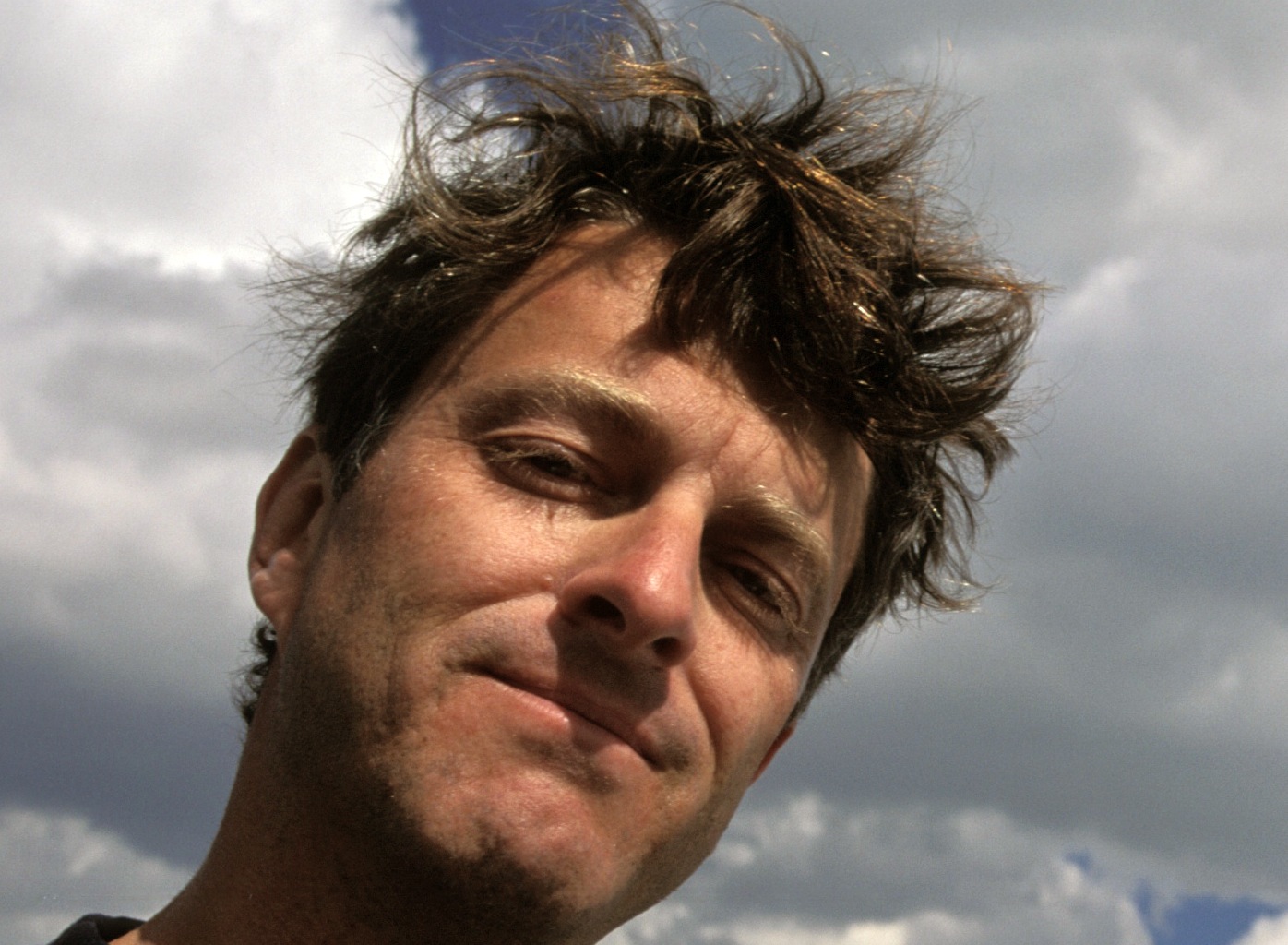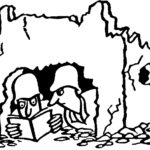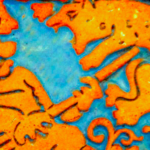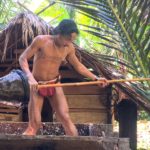Tom Clynes is an author and journalist whose passion for discovery has taken him around the world. Tom writes about and photographs adventure, culture, issues and personalities for a wide range of publications, and is a contributing editor for the magazine National Geographic Adventure. His work has also appeared in Men’s Journal, The Observer (London), Outside Magazine, Playboy, and the Washington Post. His books include Wild Planet!, a guide to the world’s extraordinary celebrations and tribal gatherings; and Music Festivals from Bach to Blues.
How did you get started traveling?
Growing up in a suburb of a medium-sized factory town in the Midwest, I was convinced that every other place on Earth was more interesting — which wasn’t far from the truth. As a teenager I secretly hitchhiked to the East Coast to see a girl; it turned into a serious adventure and I was hooked on the uncertainty and vulnerability of unstructured travel. After I graduated from college in 1983, I sold my car for $500 and bought a one-way ticket to London. I learned how to brew beer and saw a lot of post-punk bands, and then I just kept going, traveling on the cheap through Europe, Asia, and Latin America.
How did you get started writing?
As kid in the 1970s, I kept the usual angst-sodden journals, but I was terribly bored by school and not successful academically. I liked racing and working on dirt bikes, and I thought I might become a motorcycle mechanic. After graduation, my mother convinced me to enroll in a community college, where a composition instructor told me that I had a knack for wordsmithing, and that if I worked on it, I could probably develop a career as a writer. That was the encouragement I needed; I dove in and got straight A’s, then got a partial scholarship to the University of Michigan. I started writing for the college paper and got a regular gig as a music critic for a local newspaper. To support my traveling I took temporary writing jobs in advertising, public relations, and market research. I would work for a few months, then go off traveling. But I found it impossible, during the first few years, to make a living from journalistic writing.
What do you consider your first “break” as a travel writer?
In 1994 I wrote a proposal for a worldwide event-focused guidebook. I sold the idea to a small publisher (Visible Ink Press), and Wild Planet! was published in 1995. It’s a guide to festivals, celebrations, and tribal gatherings all around the world, for adventurous travelers who want to participate in the life of the cultures they visit – sort of “anthropology lite.”
It was a unique idea, and the book got a lot of attention. I was interviewed on National Public Radio, and the book was reviewed in USA Today and Time Magazine, etc. But because of a software problem in the publisher’s warehouse, they weren’t able to ship books to retailers for two months, just as all the publicity was hitting. My big “break” turned out to be a bust.
I decided to move toward magazines, and was surprised by the relative lack of respect that unknown writers get from editors. Only the most enlightened editors realize that it is in their best interest to ‘develop’ new writers who show sparks of talent. In 1998 one of my stories caught the attention of Mark Jannot, an editor at National Geographic’s new magazine, Adventure. The story, about riding through the Australian outback with “the world’s toughest trucker,” ran in their debut issue. The magazine turned out a good fit for the kind of stories I wanted to do, and Mark has been a great advocate and collaborator ever since.
As a traveler and fact/story-gatherer, what is your biggest challenge on the road?
Since I specialize in very off-the-beaten-path places, I’m often dealing with weather and transportation hassles, and with unreliable people. When you’re on a deadline, it’s humbling to come to grips with the fact that your time means nothing to the central African soldier who wants a bribe to let you pass, and that your ethics mean even less. These frustrations are balanced by the sense of triumph you get when you arrive and find something extraordinary. You realize that if it weren’t for all the hassles, everyone else would be there.
Lately, I’m covering less travel and doing more issue-oriented stories, such as environmental conflicts and infectious diseases. Added to the weather and transport hassles are issues of access to conflict-torn or disease-torn areas, security and health, and the fact that sources have often had previous bad experiences with journalists.
What is your biggest challenge in the writing process?
I love being on the road, bouncing around in the back of pick-up trucks and flying around in bush planes. But when I get back home, the actual writing process can be torturous.
Structure is always the biggest issue. I tend to over-report, so I come home with boatloads of material. I spend a lot of time organizing it, but rarely, when I start writing, do I have the narrative line of the story worked out completely. I resign myself to the inevitability of days of confusion and chaos and frustration. It’s like having a gigantic plate of spaghetti poured over your head. You swim through the material, overwhelmed. Eventually, if you grapple with it enough, you start finding strands you can use to weave the story together. When that starts happening, the process gets fun again.
What is your biggest challenge from a business standpoint?
I make a comfortable living, but because I try to only take on “important” stories that I’m passionate about — and because I’m a slow writer — my output is relatively low. I could probably make more money driving a UPS truck.
Do you do other work to make ends meet? If so, what kind of work?
I make about 10 percent of my income from the photos I take along the way, but otherwise I support myself entirely by writing.
What travel authors have influenced you?
I’m interested in and influenced by writers who wouldn’t usually be considered part of the travel genre, but who do travel extensively to get great stories. People like Ryszard Kapuscinski, Philip Gourevitch, V.S. Naipaul.
What advice would you give to someone who is considering going into travel writing?
I can’t personally think of a more rewarding endeavor: Every story is like starting a new career from scratch, and there’s tremendous freedom. But this is a long-term undertaking, and the initial frustrations are fairly extravagant. Those who are humble and willing to learn from their mistakes — and willing to make friends with uncertainty — will eventually be successful, if they keep trying. But somewhere along the way most people choose (perhaps wisely) to shift their attention to other aspects of life (relationships, other job opportunities, health), and they drop out of the writing life.
What is the biggest reward of life as a travel writer?
For me, it’s still mostly about freedom and satisfying curiosity. No matter how much you read, you can’t hope to be truly “well-informed” if you’re seeing the world mainly through other people’s filters, which are often colored by their organizations’ agendas. I believe that it’s intrinsically worthwhile to go and find out, for yourself, what’s happening out there.





